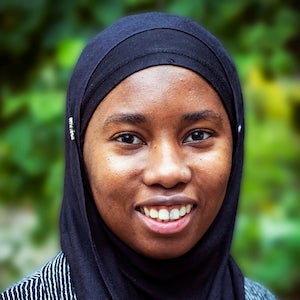The University of Rhode Island’s Center for Nonviolence and Peace Studies seeks to promote understanding, inclusion, and social justice as they teach students and community members skills that are fundamental in advocating for peace and positive social change. There, students can receive training and education on how to use peaceful alternatives to conflict and violence. One such student, Nigeran native Tosin Salau ’21, a graduate student in International Relations, also worked as an administrative and research assistant for the Center for Nonviolence and Peace Studies during her time at URI. She says she was inspired to study International Relations because of her interests in understanding conflict processes in relation to people’s rights and how certain conditions shape identities and political salience that lead to conflictual situations. “People think that particular cultures are more prone to violence and conflict than others,” she said. “We often ask why the rich are rich or in this case why countries are more developed or war-prone than others, but we tend to forget that there are underlying imbalances that shape these things.”
Salau focused her graduate research on the Special Anti-Robbery Squad (SARS) protests in Nigeria, where a young man’s death sparked nationwide protests against the impunity of SARS officers. “As the protest grew,” she said, “so did demand for response from the government. The event that thus shocked the world was the killing of nonviolent protesters at night- the Lekki Toll Gate Massacre. My research uses data of these events collected from Twitter and analyses when and where we see repression, coercion used by the police force.” She also worked alongside Dr. Paul Bueno de Mesquita and Professor Brendan Skip Mark at the Center for Nonviolence and Peace Studies to assess the impact of the Kingian Nonviolence Conflict Reconciliation Training on Community Peacebuilding. Salau says she hopes the study will help “analyze settings and conditions for violence and effective peace-building strategies between national and international settings.”
When asked what advice she would give to students looking to get involved, Salau says: “Visit the Center for Nonviolence and Peace Office located on the second floor of the Multicultural Student Center. The Center is always willing to collaborate on-campus events and activities with individuals and student groups. Students also have the option of pursuing a minor in Peace Studies, and there’s also the opportunity of doing a Spring Term abroad; this was before COVID anyway. The Center also organizes the annual Nonviolence Institute training and Leadership Development in the Summer.”
~Written by Taylor Petrini ’21

